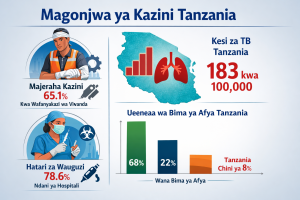
Legal Challenges And Constraints Of The Afcfta
About the African Continental Free Trade Area (AfCFTA)
Based on its intention of creating one African market, the AfCFTA is one of and greatest flagship projects of Agenda 2063 under the African Union. It is a high-ambition trade agreement with a comprehensive scope that includes critical areas of Africa’s economy, such as digital trade and investment protection, amongst other areas. However, any regional trading agreement needs essential legal elements like signatories and intention to create boundness to the provisions. The AfCFTA is one of the world’s largest free trade areas bringing together 55 countries of the African Union (AU) and eight regional economic communities (RECs). With its popularity growing daily, it cannot be crowned legally competent and perfect while having several challenges opaquely seen before the eyes of Africans.
What are the legal weaknesses of the AfCFTA?
The Agreement is riddled with poor dispute resolution mechanisms driven by the Protocol on rules and procedures for settling disputes. It is an expected challenge of not having to enforce tribunals on states that refuse to respect these decisions but having an ineffective operation to handle disputes is another challenge. The AfCFTA established a dispute settlement mechanism based on Article 20, but the body is legally weak. For instance, the Dispute Settlement Body comprises representatives from state parties. However, its composition needs to be considered when the related state parties are in conflict. Aspects of impartiality could arise and create unfair decision-making before the eyes of the African people.
There is no institution with the explicit power to litigate on behalf of the AfCFTA and ensure that state parties comply with their obligations. Article 10 of the Agreement allows the African Union (AU) Assembly to have oversight and strategic guidance on the AfCFTA through its authority to adopt the interpretations and make consensus decisions. The same party states from the AU will similarly hold seats in the AfCFTA that does not create a demarcating institutional hierarchy for state parties’ compliance. Ensuring that the state parties align with the Agreement’s desires is a tough job.
State parties undertake necessary actions for their essential security interests. In light of Article 27 (b), there are security exceptions for state parties regarding their preferred security interests. The term ‘necessary’ could be defined differently from one state to another, calling for war and battle simply because it was deemed necessary for their safeguard. This provision invites room for violence that could take place due to the absence of a uniform definition of what is deemed essential or a requirement.
Comparison with other African and International regional agreements
There is also an issue of an actively used and well-supported state-to-state dispute settlement that values fair, effective, and efficient mechanisms to solve trade problems. For more than 20 years, the World Trade Organization (WTO) has had many disputes filed before it mainly because it has a reliable dispute settlement mechanism with automatic rulings. Features to support its greatness include emphasizing dialogues and negotiations for settlement, offering the right to seek redress of non-compliance with a ruling, and a short time frame to handle a dispute.
Looking at Alternative Dispute Resolution, the WTO’s forum for Arbitration is usually run by a staff of judges, lawyers, and even administrators. Now arbitration commences where state parties fail to solve their case through negotiations, and that is where the panel is appointed to handle the matter. This clearly portrays how the issues between parties are solved with a plan and guiding structure.
How to rescue the alarming issue?
There is a need to emphasize the ongoing negotiations focusing on creating responsibility towards state parties in compliance with the agreed terms. Peaceful means are better in bringing people to an agreement, and this should be AfCFTA’s priority in whatever complaint it may receive. Even when state parties are allowed to undertake matters in their hands, they should not opt for violence. The AfCFTA should also ensure that parties are not given absolute freedom in situations such as protecting their security interest however necessary.
Institutional expansion and adjustment of the Agreement are needed to ensure opportunities for continent-wide preferential trade materialize and achieve the general objectives listed under Article 3 of the AfCTA. The Agreement should be considered for expansion, especially to the digital world, to catch up with international agreements like the WTO that are quite far ahead.
Benchmarking with other regional agreements that legally progressed by addressing issue son fragmentation and incomplete implementation is also critical. Africa should also look at other states on how they conduct their free trade area as part of learning to do good and better in performing its objectives.



